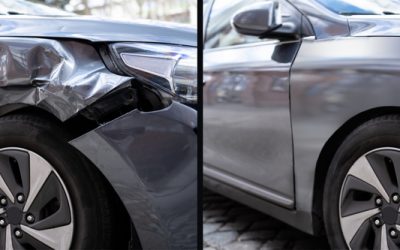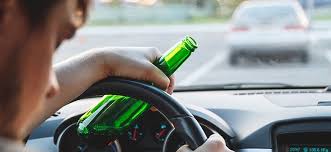
Prior to sentencing, many people don’t think of the ignition interlock device (IID) as being one of the “tougher” DUI penalties. For people who drive every day, however, losing your driving privileges can be a huge burden—it’s expensive to install, it costs more money the longer you have it, and it interrupts every trip you take in your car.
But what if you don’t drive often, or even own a car—and the judge still ordered you to install an IID? In that case, you can get the IID requirement waived. Contact our Los Angeles DUI lawyers now to learn more.
Reasons You May Have Been Told to Install an Interlock Device
Some people are required to install ignition interlock devices in their vehicles, primarily due to convictions or charges related to drunk driving, also known as driving under the influence (DUI) or driving while intoxicated (DWI). Here’s why:
- Prevention of drunk driving incidents: IIDs are designed to prevent individuals from operating a vehicle while under the influence of alcohol. Before starting the vehicle, the driver must blow into the device, and if the breath sample indicates a BAC (blood alcohol concentration) above a predetermined limit, the vehicle will not start.
- Public safety: Drunk driving poses a significant risk to public safety, often resulting in accidents, injuries, and fatalities. By requiring offenders to install IIDs, authorities aim to reduce the likelihood of repeat offenses and mitigate the potential harm caused by impaired driving.
- Legal requirement: Many states, including California, have enacted laws mandating the use of IIDs for certain DUI offenders. These laws are implemented as part of efforts to enforce stricter penalties for drunk driving and deter individuals from engaging in this dangerous behavior.
- Behavior modification: The inconvenience and stigma associated with having an IID installed can serve as a deterrent for individuals prone to drinking and driving. Knowing that they must pass the breath test to start their vehicle may encourage offenders to abstain from alcohol consumption before driving.
How Do I Waive the IID Requirement?
The way you waive the requirement is to file a form called a declaration of non-ownership. This is a short form (often just one page) that you can get from the court that convicted you. This will generally be the Superior Court in the county where you were arrested.
On the form, you are required to list all motor vehicles that you are the registered owner of or that you “have access to.” If you don’t have any, and will not use anyone else’s, You can declare that:
- I don’t own any vehicles
- I don’t operate or have access to anyone else’s vehicles
- I don’t operate or have access to my company vehicles
You can then submit the form to the courthouse, which will pass the information to the DMV office. Your IID requirement is then considered to be fulfilled.
Is There a Deadline to File the Declaration of Non-Ownership?
Yes. You must file it within 30 days of being ordered to install an ignition interlock device. You should assume that this means 30 days from the date of your conviction. The DMV will often send out a notice informing you of your ignition interlock device requirement, but defendants don’t always receive these notices, or they come very slowly.
Missing the deadline means that the court will expect proof that you installed an ignition interlock device. Since you don’t have a car, there is no way for you to provide that proof and you will likely be penalized for not fulfilling your probation terms.
If in doubt, file the form immediately, the very same day as your sentencing if possible.
Are There Any Consequences for Waiving the Ignition Interlock Requirement?
As long as you do not drive for any reason, then no, there are no consequences. The only real “consequence” is that you save a lot of money.
However, you must remember that you are still not allowed to drive a car without an IID installed. If you buy a car, or borrow or use someone else’s car, and it doesn’t have an IID, then driving it is a violation of your DUI probation. Your restricted driver’s license, if you choose to get one, will show the IID requirement so that any officer who pulls you over knows about it.
What if I Own a Car, but I Don’t Plan to Drive It? Can I Waive the IID?
No. If you own a car in your name, then the court order is binding, and you must equip it with an IID and show proof that you have done so. Even if you never drive it until your sentence is over, failing to declare your motor vehicle and get proof of an IID could also be punished as a probation violation.
What if Someone Else in My Family Owns a Car?
Be cautious. Technically, if you don’t own, operate or have “access” to the car, you shouldn’t have to install the ignition interlock program. But if this ever comes under scrutiny from the court, it could make you look like you intentionally dodged your probation requirement.
In general, you have “access” to a motor vehicle if it is kept on your property or owned by someone you are close to (such as a significant other), and you have access to the keys. If a significant other owns the car but you won’t even have keys to it, you may be able to file the declaration of non-ownership and waive the IID. You should check with your DUI lawyer to be sure.
More on Ignition Interlock Law in California
California has IID laws in place for certain DUI offenses. Here’s an overview:
- First-time DUI offenders: In most cases, for a first-time DUI offense in California, an ignition interlock device is not mandatory unless there are aggravating factors involved, such as a high blood alcohol concentration (BAC) level or causing an accident.
- Second or subsequent DUI offenses: For second or subsequent DUI offenses within a certain period, ignition interlock devices are typically required as a condition of regaining driving privileges. The duration of the IID requirement varies depending on the specifics of the offense and may range from one year to several years.
- Restricted license: DUI offenders may be eligible for a restricted license, allowing them to drive to work, school, or treatment programs, provided they install an IID in their vehicle.
- Compliance: Offenders are required to comply with all IID-related requirements, including installation, maintenance, and monitoring. Failure to comply may result in extended IID periods, license suspension, or other penalties.
- Costs: Offenders are responsible for all costs associated with the installation, maintenance, and removal of the IID.
It’s important to note that laws and regulations may change over time, and the specifics of IID requirements can vary based on individual circumstances and the discretion of the court. Therefore, individuals facing DUI or other similar criminal charges in California should consult with a qualified attorney like Michael Simmrin for personalized legal advice and guidance regarding ignition interlock device requirements.
Contact Our Los Angeles Attorneys Now for Help
If you were ordered to install an interlock device but don’t have a motor vehicle in Los Angeles or anywhere else in California, it’s essential to seek legal guidance immediately. IIDs can be challenging for people who don’t own motor vehicles, but our firm can help you understand what to do.
Have you been charged with DUI? We can connect you with an experienced Los Angeles DUI lawyer and get you a FREE consultation. Contact us now by calling or filling out our online contact form to get started.






